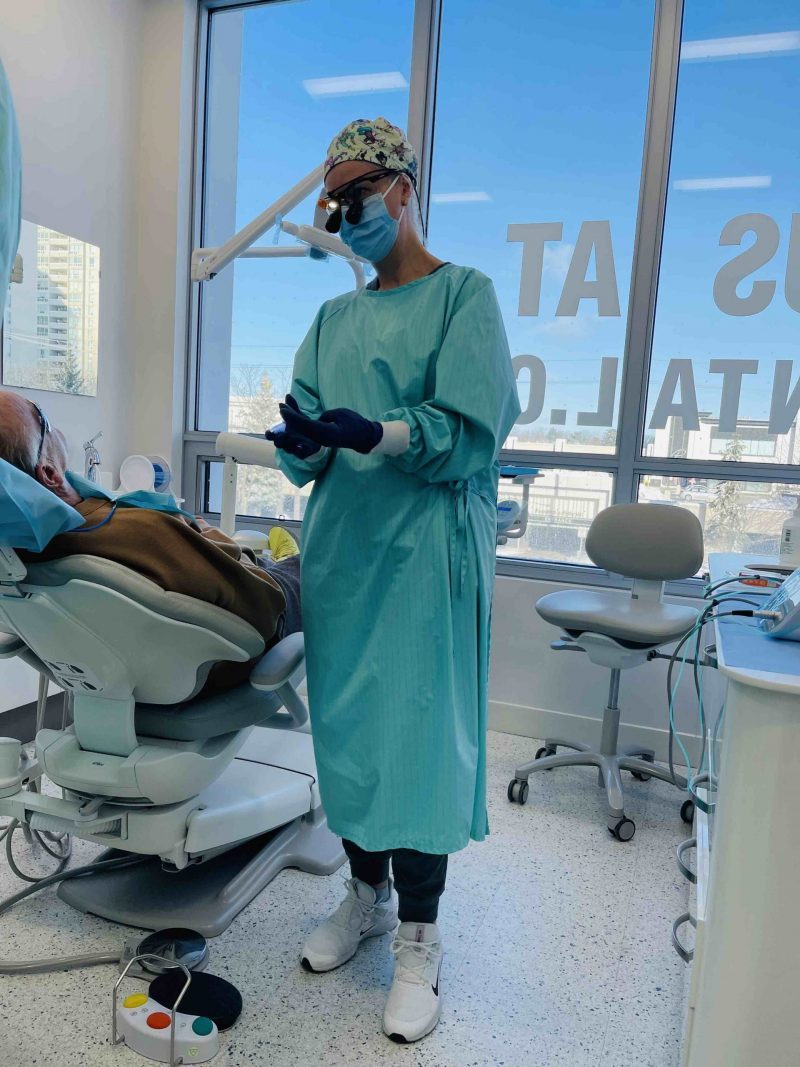Can I Switch My Dentist?

Dental care is integral to your overall health, and while loyalty to your dentist may be common, in some cases, it may become necessary to switch dentists.
Therefore, making the decision to change dentists must not be taken lightly, and should include a number of key considerations in order to make sure you are making the best possible choice for you.
What to Consider Before Making a Change
One of the most significant considerations you should make when switching dentists is the reason for the switch. If your current dentist lacks qualifications or expertise, then finding another provider with better credentials may be in order.
However, if changing providers has more to do with personal preference, such as concerns over office location, hours, or bedside manner, then there are other aspects that need to be considered as well.
When researching potential new dental practices, look into their staff and certifications, inquire about accepted insurance plans, review any available patient testimonials, and assess how comfortable you feel at each practice before committing to a long-term relationship.
What to Look for in a New Dentist
The decision to switch dentists is a serious one. While it can be tempting to make the change for reasons such as extended wait times in the office or unappealing decor, switching dentists should not be taken lightly.
When selecting a new dentist, there are several key considerations to keep in mind:
- Specialty: Does the dentist you’re considering specialize in cosmetic dentistry, or do they focus primarily on general practice?
- Location: Is the dental office conveniently located near home or work? You don’t want to take too much time out of your day getting there.
- Insurance: Will your current insurance cover visits at this particular practice? You should also consider whether additional services will require separate coverage.
Finding a dentist that meets these criteria may seem like an overwhelming task, but with careful research and adequate consideration of each factor, you can find the perfect fit when it comes to your oral care needs.
How to Make the Transition Smoothly
Before making your switch, research prospective dentists in your area by consulting local directories or asking for referrals from family members or friends. In addition, when visiting facilities, assess whether the clinic environment is clean and inviting, and if the staff is friendly and professional.
Remember to inquire about insurance coverage and payment options to determine which services will be covered under your plan, as well as what out-of-pocket expenses may arise. Also, consider factors such as availability of appointment times and emergency office hours.
Once you have made your decision, contact your current dentist to let them know when you would like to terminate your relationship with them – this includes formally cancelling any existing appointments. Ask for copies of all pertinent medical records so that they can transfer over to your new provider, along with x-rays and other diagnostic images that could help inform future treatment plans.
Following these steps ahead of time will ensure that transitioning between dentists goes quickly and easily.
Frequently Asked Questions
How Long Does It Take to Switch Dentists?
Generally speaking, transitioning from one dentist to another takes anywhere between seven to ten days depending on your situation. In order to begin this process, contact your current provider to ensure that all records are sent over in an orderly fashion and within a timely manner.
It is also important for individuals looking for new dental care providers to do research into prospective offices, as well as inquire about any insurance coverage or payment plans they offer. This will provide clarity on what options are available while ensuring communication needs are met throughout the entirety of the transition period.
Once these steps have been taken and expectations established, it is just a matter of waiting until everything has been cleared up and paperwork has been finalized. At this point, you can expect to schedule appointments with your chosen office and begin building relationships with staff members upon arrival for your first visit.
What If I Can’t Find a New Dentist in My Area?
Switching dentists can be a daunting task, especially if you don’t know where to start. It’s important to consider the practical aspects of finding a new dentist in your area before making any decisions.
When looking for a new dentist in your area, research local procedures and requirements for switching dentists through your insurance provider or other dental associations. Next, contact existing patient referral programs available at the nearest hospital or university that offers specialized care, and check with the state board of dentistry to determine if there are additional resources and services available near you.
Finally, look into online directories that provide detailed information about different types of dentists and their practices in your area.
